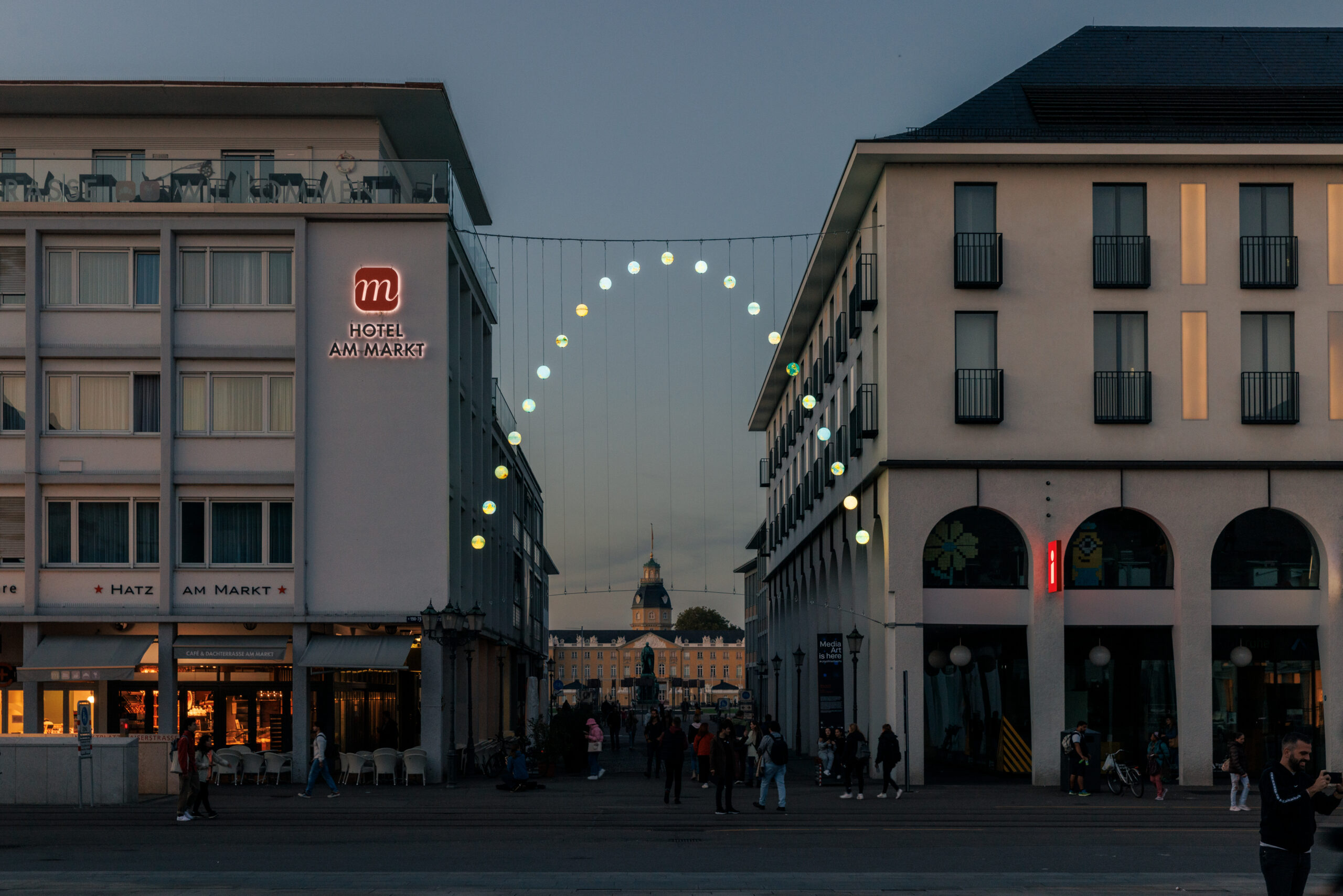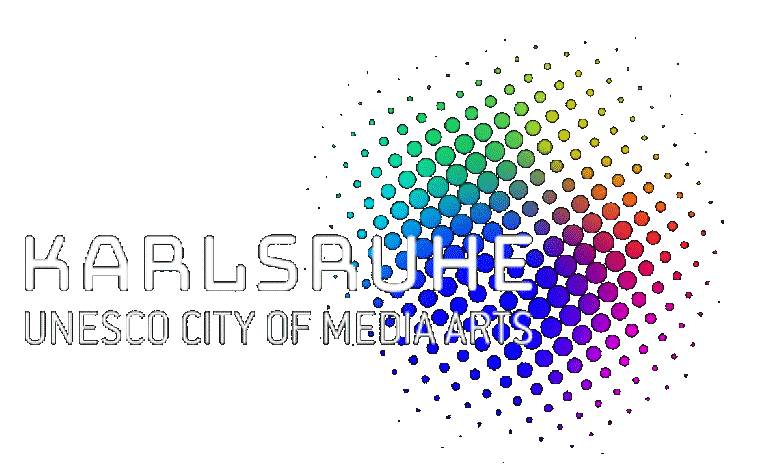City of Media arts

Media Art is universal – it stands for social and technological innovation, for creativity, connectivity, interdisciplinarity, and brings art and science together in manifold ways.
Karlsruhe is a city in which Media Art is part of life in its various forms: work and leisure time, as well as public and institutional spaces, offer citizens and guests the opportunity to immerse themselves with diverse innovative practices as visitors, participants, or even as contributors.
As a booming IT location, Karlsruhe has an excellent and broad-based reseau of universities and research. This net and a historic cultural infrastructure of exceptional diversity for a city of its size combine with a flourishing cultural and creative economy.
Culture and creativity are important economic factors which generate turnover, employment and income, shape future factors such as digitisation and ensure innovation. They open up future prospects for innovative and creative people who are trained at the local universities. Culture and creativity bring people together and foster social cohesion. They shape structural change and have positive effects on urban development. They increase the attractiveness of the city, improve its image and attract national attention — in other words, they make the city a better place to live in.
Karlsruhe also has a long tradition as a city of law, fundamental rights and democracy. Indeed, it is home to Germany’s Federal Court of Justice and Federal Constitutional Court, which are the country’s highest judicial forums. As one of the three pillars of the separation of powers in government, the city symbolically stands for the values of a free and democratic society. Rights such as artistic freedom and freedom of expression, so important for artists, are negotiated, maintained and defended in this very city. This is an especially important prerequisite for the realization of media art works, which are often characterized by digital participation, interaction and participation or which address critical questions. Hence, as a city dedicated to both law and media art, Karlsruhe is well poised to engage with and interjoin two very topical global themes.
Joining the UNESCO Creative Cities Network will give Karlsruhe and the city’s stakeholders the opportunity to make new contacts, provide new impulses and form new connections with organisations and artists in the UNESCO Creative Cities on all continents. Admission to the Network will give a new impetus to the city and foster dynamic development of creative innovation. Creativity is seen as a strategic factor for sustainable urban development, which also strengthens the links between the IT and creative scenes, the economy and urban society and advances the integration of the open source and NGO scenes.
Internal networking and integration of the scenes facilitates the formation of an urban identity and enables a more distinctive external profile. The membership strengthens international networking, collaboration and exchange between cultural institutions, artists and specialists in the digital culture and creative industries on an international scale. The application is thus fully compliant with the internationalisation strategy adopted by the City of Karlsruhe in 2012.
The City of Karlsruhe and its creative actors would like to contribute to the UNESCO Creative Cities Network and transfer innovations and know-how accrued from its mutual relationship between media art and the fields of culture and creative industries, IT, science and research, as well as democracy and fundamental rights to the other member cities as well as the global context.





